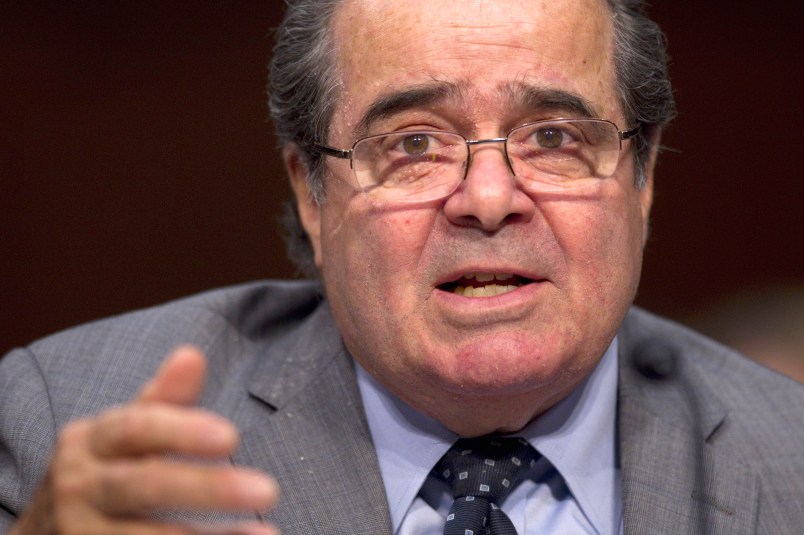Everybody knows that if the Supreme Court rules later this year to invalidate Obamacare’s tax subsidies in the 30-plus states using the federal HealthCare.gov, it will be a massive blow to the law. More than 9 million people could lose their health insurance and the law’s insurance markets could be sent into an actuarial death spiral.
But that isn’t the whole story. An adverse Court decision would also completely neuter Obamacare’s employer mandate in more than half the states, further weakening the law’s ability to achieve its goal of universal and adequate health coverage.
The reason is pretty simple, as the Kaiser Family Foundation’s Larry Levitt explained to TPM: The employer mandate’s penalties, the teeth that make the policy work, are triggered by the tax credits that would be wiped out in the new lawsuit against Obamacare. Employers with enough employees (100 in 2015; 50 starting in 2016) are required to provide insurance. If they don’t, and their employees go to the law’s insurance exchanges, qualify for a tax credit, and buy insurance, then the employer is assessed a penalty.
“Penalties on employers that don’t offer coverage to their workers are only triggered if one or more of their workers receive subsidies in a marketplace,” Levitt said. “If there are no subsidies, there are no employer penalties.”
But that makes the stance of top business groups toward the King v. Burwell lawsuit a little befuddling. They have made repealing the employer mandate a top priority since Obamacare passed. A ruling against the law would effectively repeal it by three-fourths. It’s easy to imagine any “grand bargain” to restore the subsidies on HealthCare.gov would involve its full repeal — and even the law’s supporters have conceded that the mandate is expendable.
The elimination of the mandate in three-quarters of the states through the lawsuit would go a long way toward achieving the goals of big business groups like the Chamber of Commerce and the National Federation of Independent Businesses, but those groups have not weighed in to support it. Neither the Chamber of Commerce nor the NFIB would comment to TPM on the King case’s implications for the mandate.
“The outcome will be important to all users of the healthcare system if the plaintiffs win their argument. There will be direct and indirect effects associated with that decision,” Amanda Austin, a health policy expert at NFIB, told TPM.
“For now, our position still stands that NFIB members dislike the employer mandate and want to see it gone,” she continued. “However, at this stage, NFIB is not commenting on whether this is the vehicle for it to ride on.”
The exact effects of the potential ruling for the mandate haven’t been mapped out, but experts have studied the expected effects of full repeal of the employer mandate. About three-fourths of the marketplace and uninsured populations live in HealthCare.gov states. If you scale that to the previous estimates of the effects of full repeal of the employer mandate, it would mean up to 375,000 people would lose employer coverage.
Beyond that, according to Levitt, such a ruling would have unpredictable and potentially deleterious effects for those who still have their employer-sponsored insurance. The employer mandate not only compelled employers to offer health coverage, but to provide adequate health coverage. If their plan wasn’t sufficient and an employee went to HealthCare.gov and used a tax credit to purchase a better plan, that would also subject the employer to a penalty.
But again, Obamacare would lose that stick if the Court rules to invalidate tax credits on the federal exchange. Without the employer mandate, the law doesn’t require employers to provide coverage that meet certain standards for benefits or for cost-sharing. Employers could offer much less generous coverage, Levitt said, while their employees would still satisfy the other mandate: the individual mandate.
“If the court sides with the plaintiffs and the employer requirement goes away in many states, there would be nothing to stop employers from offering very skinny plans that would also satisfy the individual mandate for workers,” he said.
Correction: This piece originally misstated the effect on employer coverage using the Urban Institute’s estimates. An estimated 375,000 people would lose insurance, not 150,000 as initially reported.






